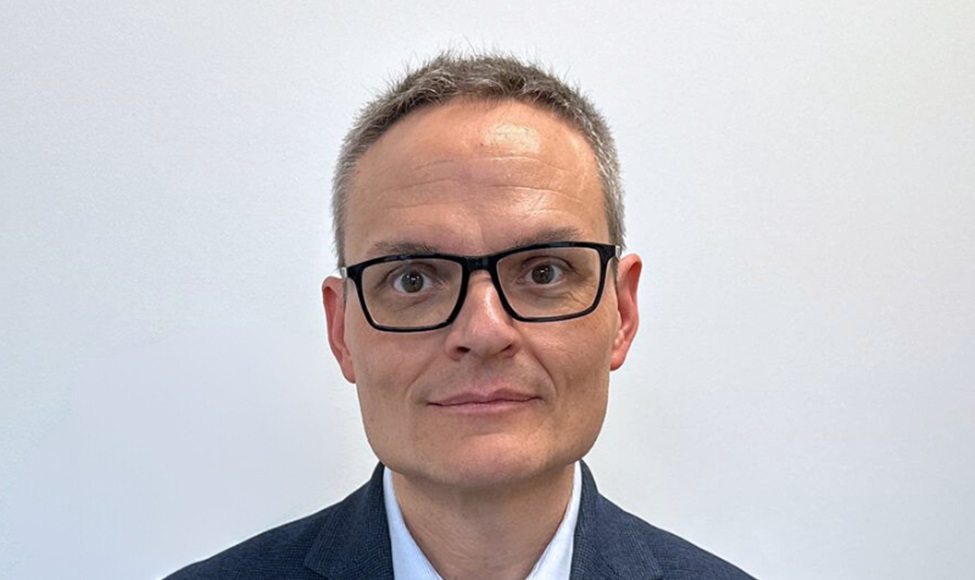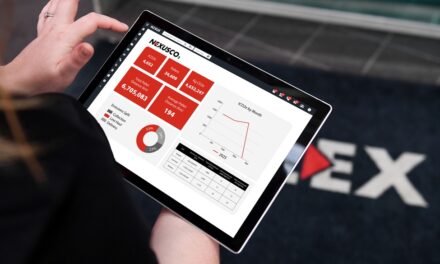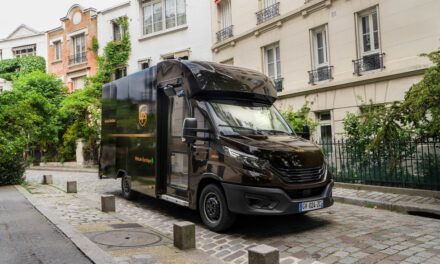
Building resilience

Post & Parcel speaks to Markus Kessler, Managing Director, UPS UK, Ireland and Nordics about the delivery landscape and his vision for sustainable logistics.
What attracted you to this role?
Before stepping into the role of Managing Director for UPS UK, Ireland, and Nordics, I served as the Country Manager for Switzerland and Austria. While the responsibilities in these roles are somewhat similar, I was particularly drawn to the new position by the dynamic and expanding opportunities in the UK, Ireland, and Nordic markets. This region’s potential for growth and innovation was a compelling factor in my decision to take on a new challenge.
What projects are you excited about?
I’m particularly excited about the rollout of additional electric vehicles across Europe, with Paris receiving the first just ahead of the Olympics. By the end of the year, we expect to have over 600 new vans in operation in cities across the region, each producing zero tailpipe emissions, with the capacity to cover 142 miles per charge. With the increase in zero and low emission zones in cities globally, these vans will enable us to continue serving customers in urban areas.
I’m also excited about our new cycle hub facility in Cambridge, supporting the city’s Clean Air Initiative. This innovative hub operates from a converted shipping container, acting as a consolidation and dispatch point for packages bound for the city centre. It deploys three eQuad vehicles for final-mile deliveries, which would typically be delivered in two conventional diesel vans.
Both the electrification of our fleet and new models for urban deliveries are a significant step in our broader decarbonisation strategy. In addition to investing in electric vehicles, we are committed to alternative fuels, renewable electricity, and developing more climate-conscious facilities. These initiatives collectively drive our efforts to reduce our environmental impact and promote sustainability.
What do you hope to achieve in your role?
Over the next three years, we plan to make bold moves to create a growth flywheel in premium markets, while at the same time drive higher productivity and efficiency. We can orchestrate our customer’s entire supply chain from manufacturing to customs brokerage, freight forwarding, distribution, transportation to the end recipient or the store, and even returns and reverse logistics. With our extensive portfolio, we can seamlessly scale our premium solutions to meet each customer’s needs.
How is the delivery landscape in the UK changing?
The delivery landscape in the UK is evolving significantly, presenting new opportunities despite the changing trade relationships with the EU. UK businesses continue to thrive in international trade, benefiting from recent trade agreements with Australia, New Zealand, and Singapore, and anticipating further agreements with India, Canada, and Turkey etc. These agreements enable UK businesses, particularly in the e-commerce sector, to expand into new markets and reach new customers.
We support this growth by creating an ecosystem tailored for small and medium-sized businesses (SMBs), integrating our physical and digital networks to facilitate seamless shipping and business operations. Our digital solutions, including the Digital Access Programme (DAP), ups.com, and the UPS mobile app, offer customers simplified access to shipping, visibility, payment, and claims processes. Additionally, with over 60,000 UPS Access Point locations worldwide, we enhance choice and convenience for those using our services.
Healthcare logistics is a strategic growth area for us, driven by increasing demand. As pharmaceutical companies innovate to address the needs of an aging population and chronic diseases, the demand for biologics is rising. Our expertise in handling complex logistics needs, from medical devices to gene therapy and lab specimens, positioning us well to support the healthcare sector. Our expansive global portfolio and network enable us to provide precise end-to-end logistics solutions, ensuring we can meet the specialised requirements of this market.
How will you be meeting the changing needs of customers in the UK, Ireland and Nordics?
Consumers want more choice and flexibility as they have become more conscious of environmental challenges such as emissions and congestion. We are focusing on sustainability and efficiency to meet those needs. We are making investments in advanced technologies and innovating in alternative fuels to support, including electric vehicles (EVs), natural gas trucks, and electric cycles. These initiatives help us reduce our environmental impact while maintaining reliable service.
Our commitment to responsible business practices drives us to continually innovate and improve our services, not just in the UK, Ireland, and the Nordics, but globally. We aim to decouple carbon emissions from business growth, making sustainability and efficiency central to everything we do. By prioritising these values, we can better serve our customers and contribute positively to the environment.
What are the key challenges facing the sector and how do you hope to tackle them in your role?
Over the past four years, the need to build resilience into supply chains has become increasingly clear, particularly in areas where disruptions have had a prolonged impact on product availability.
As a business, we are leveraging our multimodal solutions to customers, offering alternative pathways through both air and ground routes. This agility allows businesses to navigate bottlenecks and maintain a streamline flow of goods. By providing flexible and resilient logistics options, we help our customers mitigate the effects of disruptions and ensure their supply chains remain robust and reliable.
Over 60 countries are holding national elections in 2024. The logistics industry will be required to adapt quickly to navigate what will be an increasingly complex geopolitical environment with changes to customs regulations, trade policies, and environmental standards likely to be on the horizon in my countries. Continuous monitoring of regulatory and governmental changes is needed to ensure that we can adapt operations, ensuring the smooth movement of goods across borders.
Can you tell me how UPS’ dedicated cycle hub in Cambridge will help UPS meet its sustainability goals? In what way is the facility unique and how has it been received?
Our dedicated cycle hub in Cambridge is a crucial part of UPS’s strategy to meet our ambitious global sustainability goals. Globally, we have over 18,300 alternative fuel and advanced technology vehicles in operation, and we aim to power 40% of our ground operations with alternative fuel and use renewable electricity in 25% of our facilities by 2025.
The UK has been a testing ground for sustainable logistics innovations for many years, and the Cambridge cycle hub is a prime example of this. The hub and eQuads helps us to reduce emissions and congestion in the city centre. The facility demonstrates the viability of using alternative delivery methods in urban areas, serving as a good case study for deploying similar solutions in other cities worldwide.
About Markus
Markus Kessler is the managing director of UPS UK, Ireland and Nordics. He joined UPS in 2006 as an account executive in Frankfurt. After being promoted to roles in sales, Markus became a talent manager in 2012. He continued his career in HR, becoming vice president for human resources and labour relations. Markus was later promoted to Austria and Switzerland country manager in 2022. He started his current role as managing director in early 2024.












